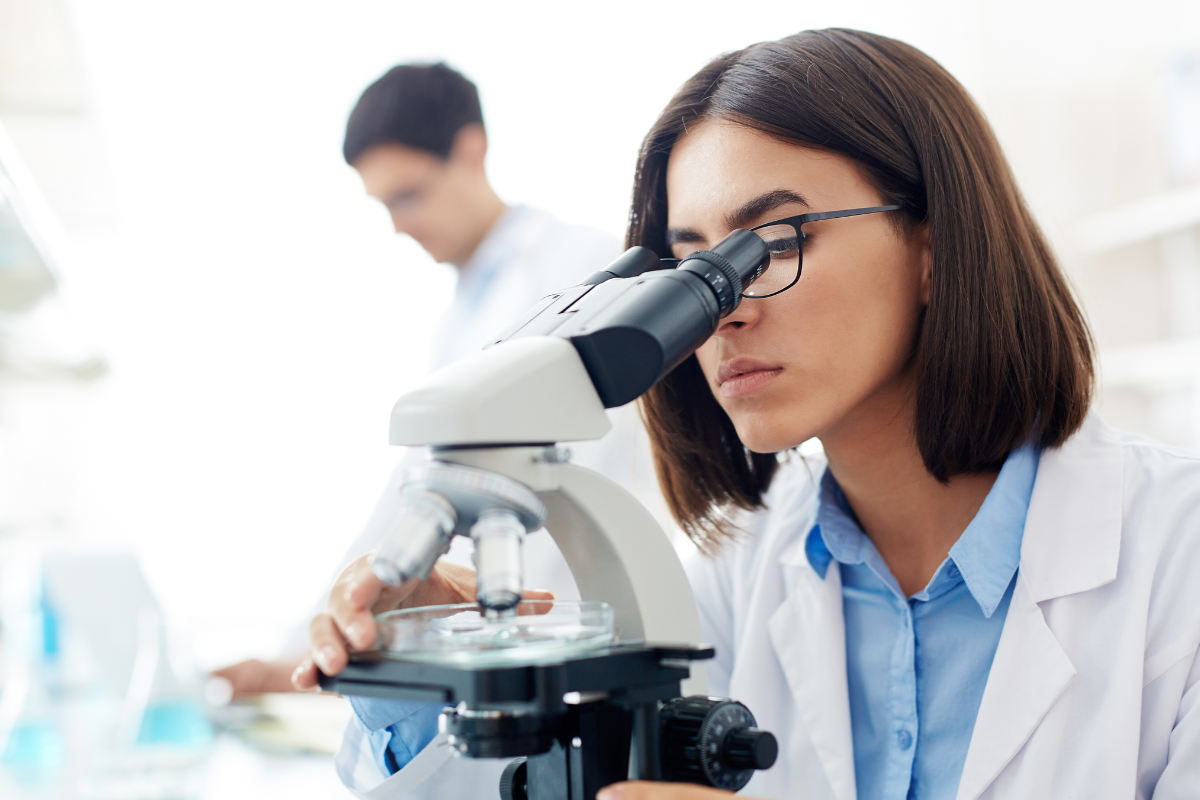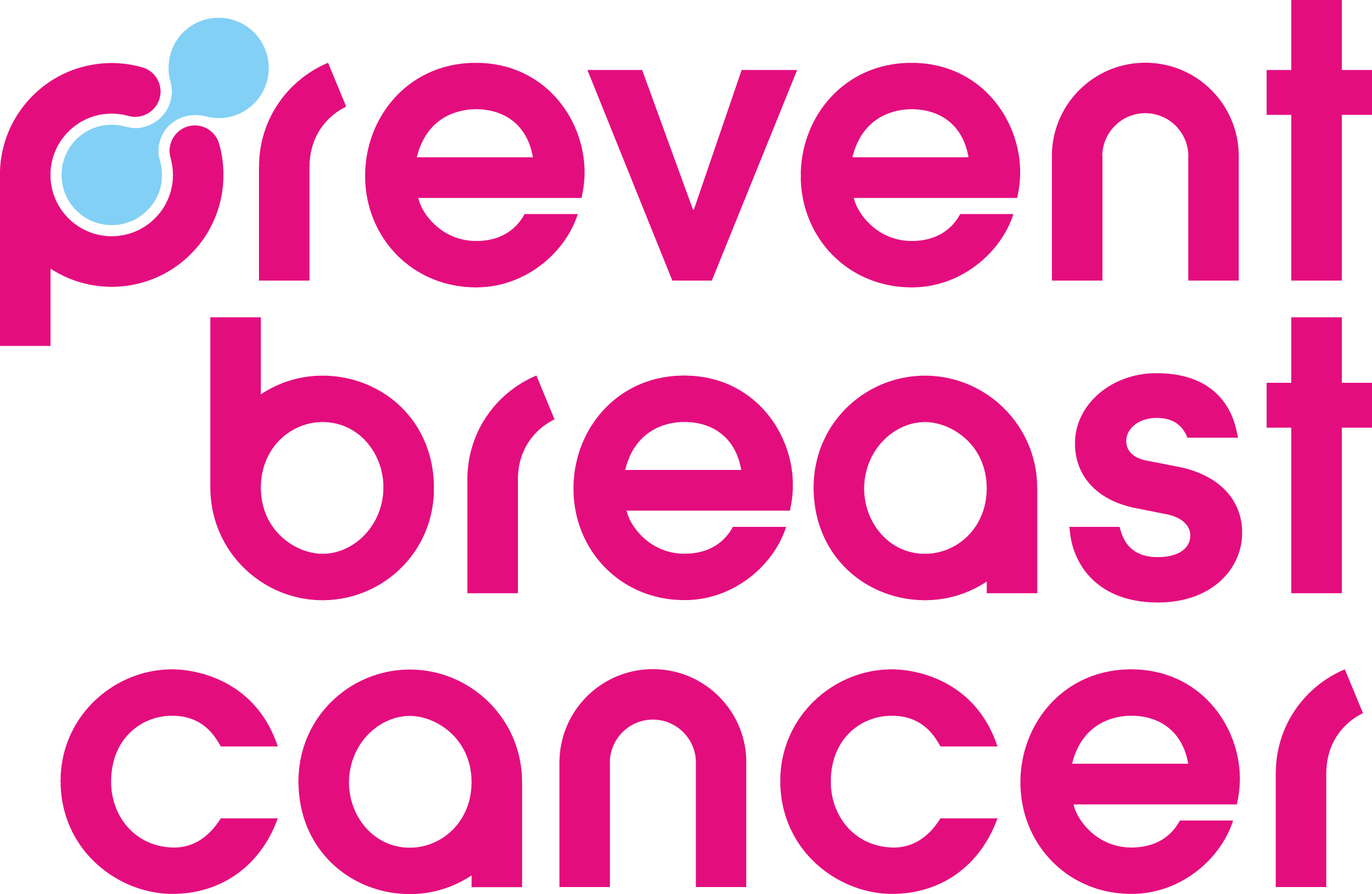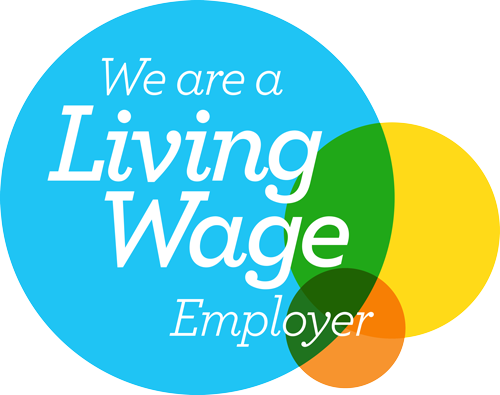Breast cancer researchers have discovered a way of keeping human breast tissue viable outside of the body for at least seven days, offering a powerful opportunity to study cell changes in response to different drugs and aiding opportunities for new drug development.
In a study funded by Prevent Breast Cancer, scientists working in the Manchester Breast Centre showed that they could preserve tissue in gel solution – called VitroGel – maintaining viability and response to oestrogen and anti-oestrogens over seven days.
Culturing tissue samples in this way means that scientists can study normal breast tissue in a lab in great detail. The cultured tissue maintains the structure, cell types and receptor expression that are present when the tissue is in the breast. The fact that the cultured tissue samples respond to oestrogen and anti-estrogens in the same way the normal breast responds gives great confidence that the model will prove valuable in breast cancer prevention research. The study, ‘A novel preclinical model of the normal human breast’ has been published in the Journal of Mammary Gland Biology and Neoplasia.
This breakthrough enables scientists to test different drugs and hormones on live tissue to see how they interact with cells, helping advance the development of new drugs. Researcher Hannah Harrison explained:
There are various risk reducing options for women at high risk of developing breast cancer – for example those with a significant family history or who have mutations in the BRCA genes. However, not all drugs work for all women. This new approach means that we can start to determine which drugs will work for which women by measuring their impact on living tissue. Ultimately this means that women can take the most effective drug for their particular genetic make up.
“By testing different hydrogel formulas we were able to find a solution that preserves human breast tissue for at least a week and often even longer. This is a real game-changer for breast cancer research in many ways. We can better test drugs for both the prevention and treatment of cancer, and can examine how factors like breast density – which we know is a risk factor for breast cancer – react to particular hormones or chemicals to see if this has an impact on cancer development,” she added.
Tissue samples were taken from women with high risk of developing breast cancer as part of the study.
Lester Barr, consultant breast surgeon and founder of charity Prevent Breast Cancer, added:
“Breast cancer mortality is decreasing in the UK thanks to improved screening and treatment options, but incidences continue to rise and breast cancer is the most commonly diagnosed cancer in the UK. It’s therefore really important that we develop new prevention and risk reduction options for women, especially for those with a high risk due to their family history or genetics.
“This breakthrough means that researchers will be able to test new drugs in the lab with far greater accuracy, which should mean fewer drugs failing at clinical trials and ultimately better results for women affected by this terrible disease,” he added. “It’s a hugely exciting development in animal-free research which puts us in a really strong place to find new drugs to prevent breast cancer.”
The potential for this model to improve preventative drug development resonates with Diana Harris, who is living with breast cancer and is a trustee of Prevent Breast Cancer. Diana was first treated for the disease in 2010, and has since received the devastating news that her cancer has returned and spread. She said:
“It’s so important that we continue investing in breast cancer research. New discoveries like this one offer real women a chance for a cancer-free future and that is something which cannot be overstated.”
“I live with secondary breast cancer but endeavour to live my life to the full. This breakthrough in breast cancer research will not only help in preventing breast cancer but will also help women with breast cancer by potentially identifying treatments which are more effective. This is a progressive step towards more personalised medicine. My heart goes out to everyone who is given a breast cancer diagnosis, it’s all too many, and if we can prevent this in some women and make treatments more effective others, then this has to be good news.”
Find out more about the research Prevent Breast Cancer funds.
About Prevent Breast Cancer
Prevent Breast Cancer is the only UK charity entirely dedicated to the prediction and prevention of breast cancer – we’re committed to freeing the world from the disease altogether. Unlike many cancer charities, we’re focused on preventing, rather than curing. Promoting early diagnosis, screening and lifestyle changes, we believe we can stop the problem before it starts. And being situated at the only breast cancer prevention centre in the UK, we’re right at the front-line in the fight against the disease. Join us today and help us create a future free from breast cancer. If you have any questions or concerns, email us today.




